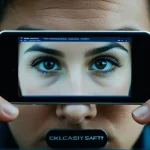Key Advantages of Integrating Video Games in UK Computing Education
Video games in education provide significant benefits by boosting student engagement and motivation. Interactive gameplay captures learners’ attention more effectively than traditional methods, making digital learning immersive and enjoyable. Students are naturally drawn to challenges in games, which encourages persistence and problem-solving, key skills in computing.
Incorporating video games aligns well with the UK computing curriculum, which emphasizes computational thinking and practical coding experience. Games offer hands-on opportunities where learners can experiment with logic, algorithms, and debugging in a dynamic setting. This promotes experiential learning—students learn by doing, rather than passively consuming information.
Also to see : Can Video Games Improve Critical Thinking Skills?
Educational technology that includes video games fosters collaboration and creativity. Learners often work in teams or create levels themselves, enhancing understanding of programming concepts and encouraging innovation. These approaches resonate strongly within the UK computing curriculum, which aims to produce confident coders and critical thinkers.
By integrating video games in education, schools tap into a proven tool to enrich computing education. This fusion of gaming and curriculum standards effectively prepares students for future digital challenges while making the learning process engaging and relevant.
In parallel : What impact do UK video games have on education and learning?
Core Educational Outcomes from Video Game Integration
Video games can significantly enhance skill development, particularly in problem-solving and computational thinking. Players engage with complex challenges that require analyzing situations, strategizing, and adapting tactics, which directly boosts problem-solving skills. This hands-on interaction helps learners strengthen their capacity to think critically and approach problems methodically.
Beyond problem-solving, video games often encourage the acquisition of coding skills and a deeper understanding of algorithms. Many educational games incorporate programming tasks or logic puzzles that simulate coding environments, making abstract concepts tangible. This experiential learning facilitates algorithmic thinking, where learners grasp how sequences and conditions affect outcomes.
Additionally, video games foster collaboration and communication competencies. Multiplayer and cooperative games demand teamwork, clear communication, and collective strategy formulation. These social interactions nurture skills vital in educational and professional contexts, enhancing learners’ ability to work effectively in groups while navigating complex tasks together.
In sum, integrating video games into education supports a spectrum of valuable skill development, combining computational thinking, coding principles, and communicative collaboration into an engaging, interactive format.
Real-World UK Case Studies and Academic Support
Real-world UK education case studies offer valuable insights into how innovative teaching methods translate into tangible learning improvements. For example, several UK schools have integrated technology-enhanced learning environments, reporting clear gains in student engagement and attainment. These classroom examples demonstrate that when tailored properly, modern techniques boost both motivation and academic outcomes.
Expert opinions from UK educational researchers consistently highlight the importance of evidence-based strategies. Research evidence underlines how structured interventions and differentiated instruction positively influence pupil progress. An analysis of these studies reveals measurable impacts such as improved literacy rates and higher test scores across diverse student populations.
Case studies also emphasize the need for ongoing teacher professional development to sustain success over time. Combined with solid academic backing, these practical implementations paint an encouraging picture for educators aiming to enhance their teaching effectiveness in UK classrooms. Exploring this evidence can inspire educators to apply proven methods confidently.
Addressing Curriculum Goals and Teacher Perspectives
Mapping video game use to curriculum alignment in UK computing reveals promising connections. Many educators recognize that well-chosen games can support learning objectives such as problem-solving, logical reasoning, and coding fundamentals. This alignment enhances digital literacy by engaging students interactively, moving beyond theoretical concepts.
Teachers frequently report positive student outcomes, noting improvements in critical thinking and motivation. Their perspectives emphasize that video games provide an inclusive, stimulating environment where students experiment safely with computing ideas. However, successful integration depends on clear alignment with curriculum goals and structured guidance.
When considering classroom integration, best practices include selecting games with explicit links to learning targets and embedding reflection activities to reinforce concepts. Teachers highlight the importance of balancing screen time with discussion, ensuring students connect gameplay to computing principles. Effective use also involves ongoing assessment to monitor progress and adapt strategies.
In summary, leveraging video games within the UK computing curriculum could significantly enhance digital literacy and learning outcomes, provided educators maintain focus on curriculum goals and remain attentive to their classroom experiences.




